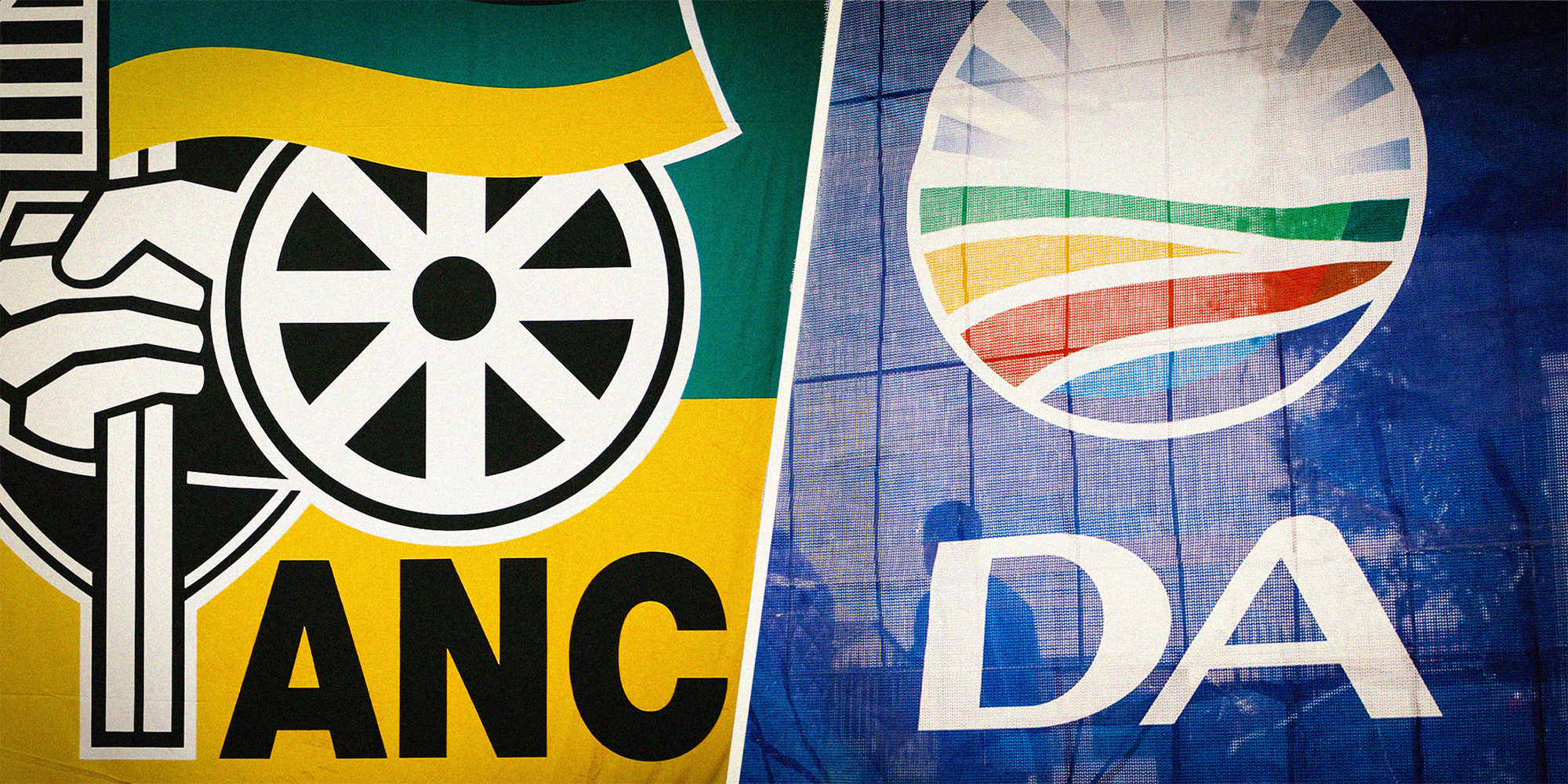The ANC’s hegemony on the public imagination of South Africa has ended, but it can still form a government next year, a study by the Inclusive Society Institute (ISI) shows.
The ISI has analysed the latest Ipsos polls and found that while ANC support among eligible voters has plummeted to 33%, it is still likely to form a government next year – but is unlikely to win a majority.
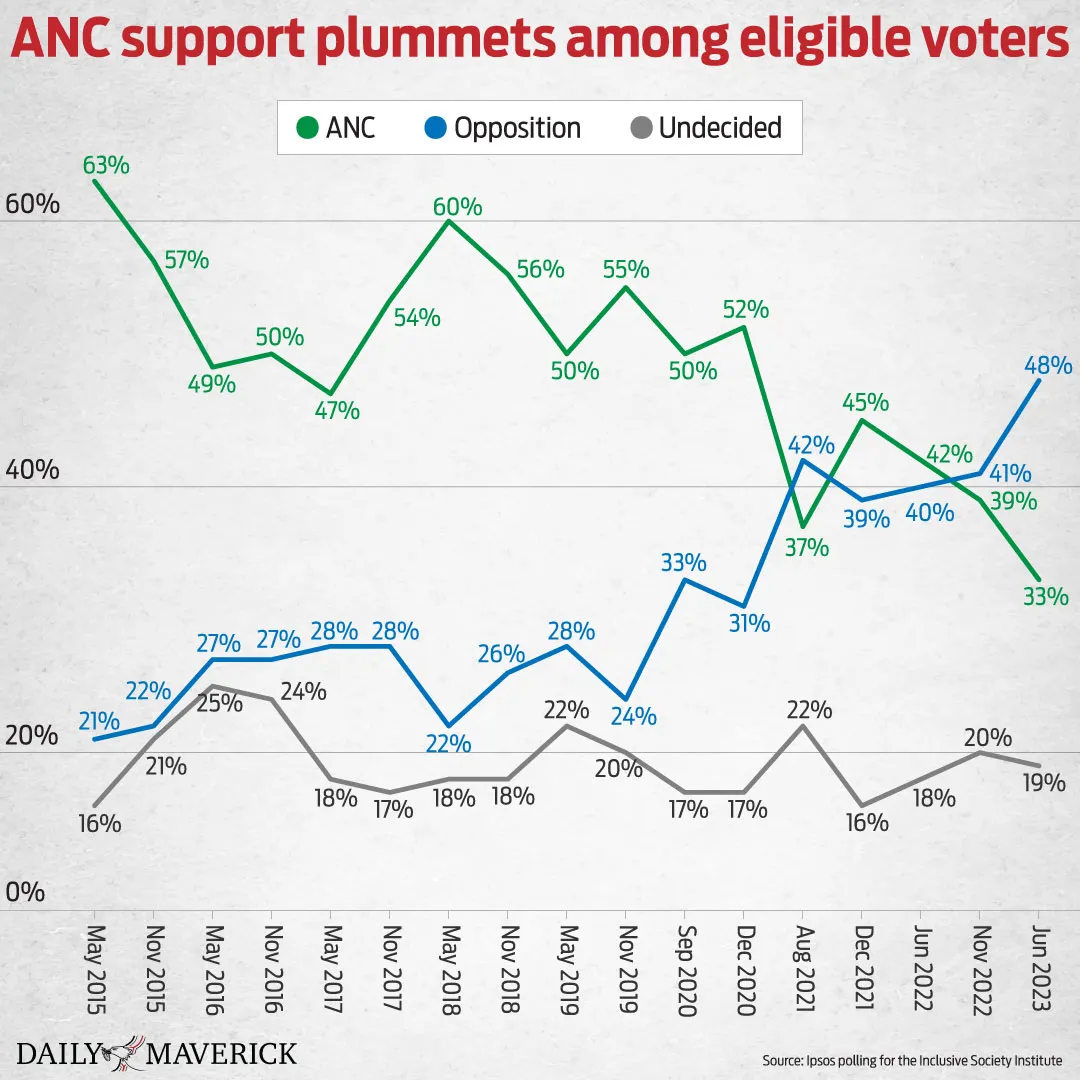
“It’s a major decline, but not as bad as I thought. The ANC will lead the government if an election were to be held tomorrow,” says ISI CEO Daryl Swanepoel.
He has calculated that on a medium turnout of 43% of registered voters, the ANC could get 48% (50% on a high voter turnout and 53% on a low one). Pollsters attribute undecided voters to parties they are likely to vote for in order to reach more accurate numbers.
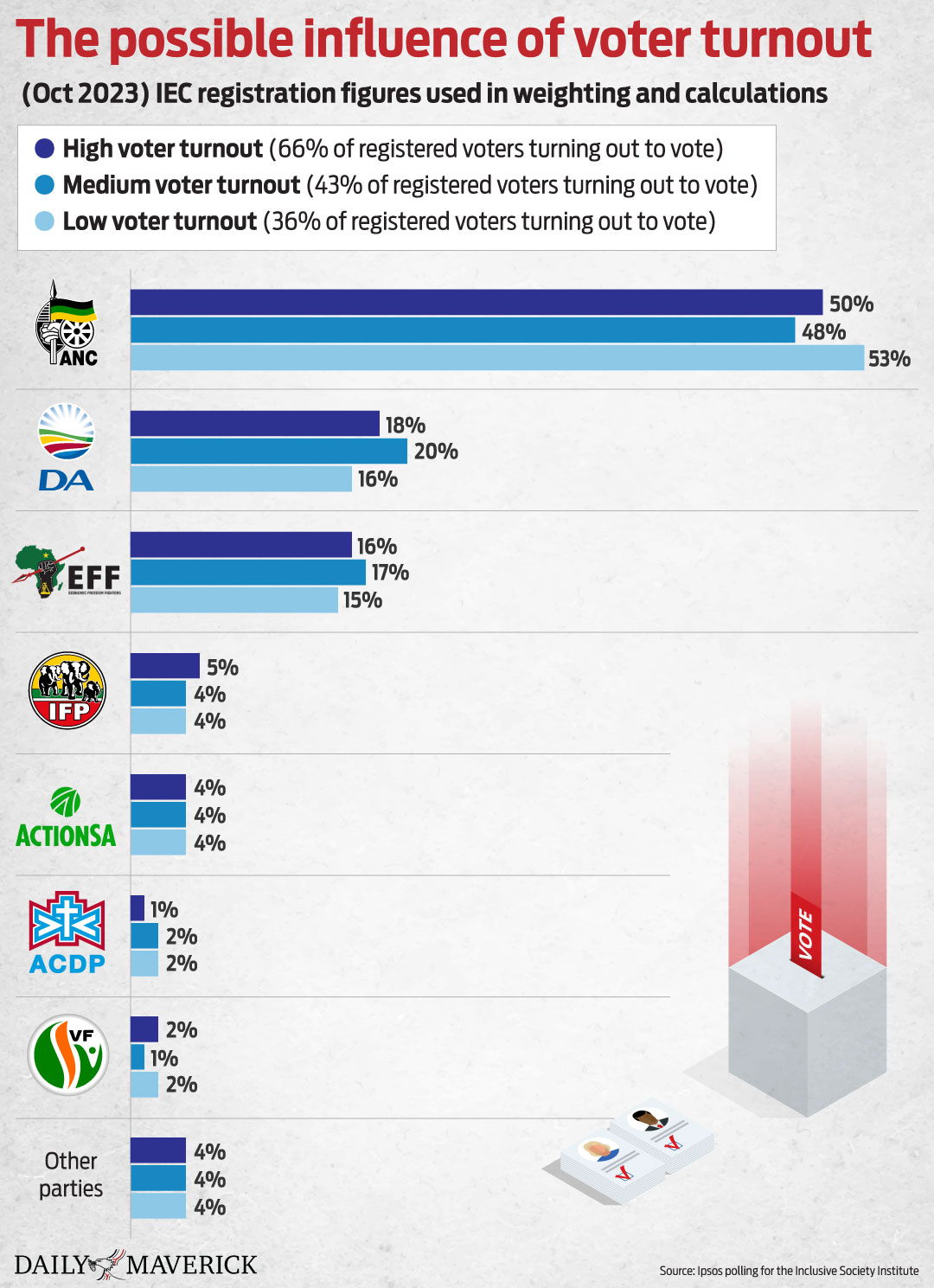
“If they get just under 50%, they can form a coalition government with (Patricia de Lille’s) Good party or one or two smaller parties,” says Swanepoel, who believes the party will not need EFF support at a national level. The ISI is a social democratic independent think-tank which advises the ANC.
“At this point, and if an election were held tomorrow, we should have an ANC-led government and it will definitely not be a Multi-Party Charter (MPC) government,” he says.
The MPC is a coalition of seven parties led by the DA, ActionSA, IFP and Freedom Front Plus, along with a few smaller parties.
Read more in Daily Maverick: How the Multi-Party Charter could make history at the 2024 polls
DA MP and campaign strategist Leon Schreiber says that on the Friday before voter registration weekend earlier in November, internal polls had the ANC at 39% and the DA at 32% support among registered voters. Further longer-term trend analysis put the ANC at 38%, DA at 28% and EFF at 8%, said Schreiber.
Eligible voters (42.6 million) are distinct from registered voters (26.8 million now); the ISI and DA analysis numbers are based on registered voters.
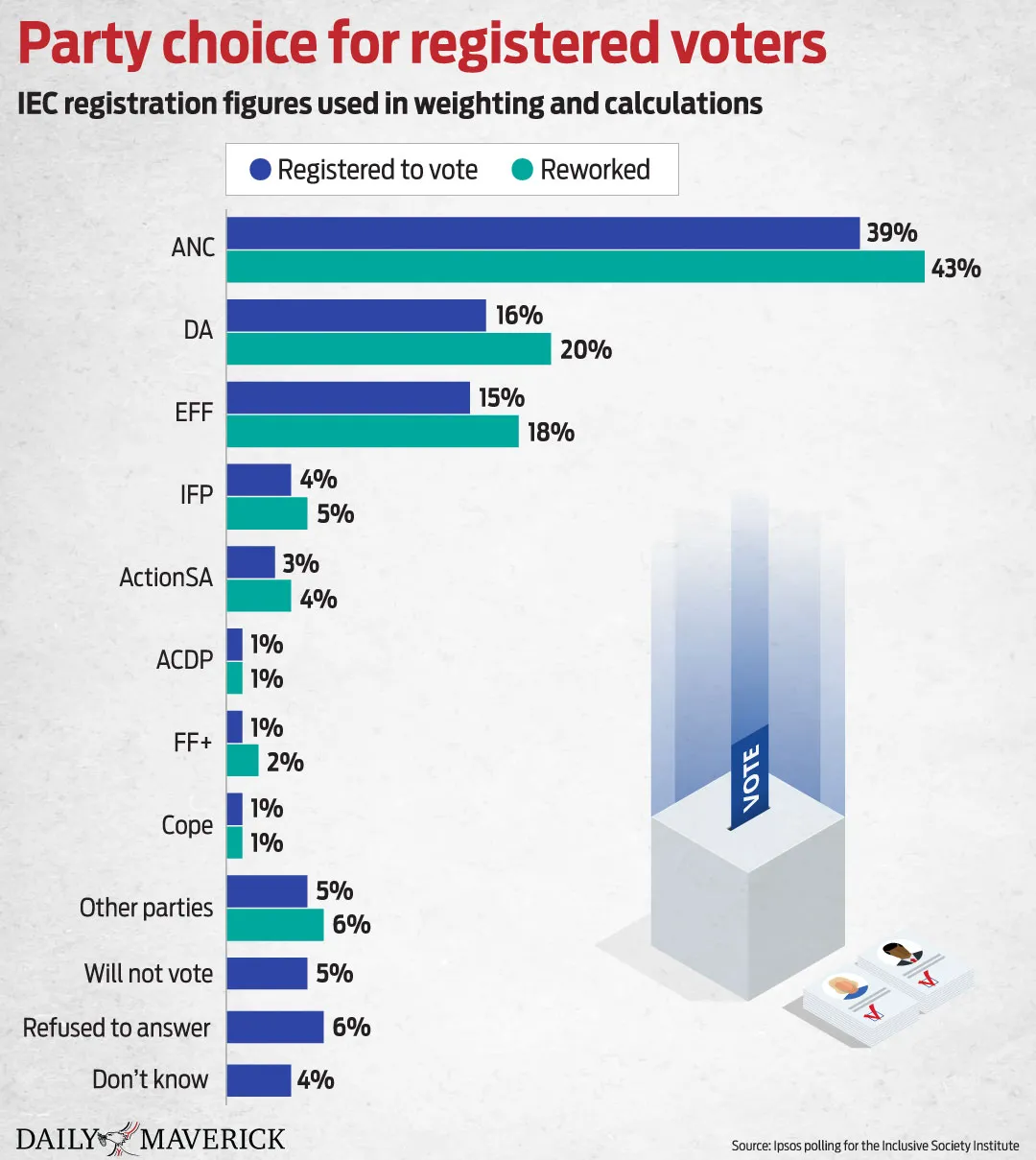
Both DA and EFF grow
While the ANC has lost support since the 2021 local government poll, the DA and EFF have grown. If an election were held tomorrow, the EFF could get slightly more than the DA, according to the ISI analysis. Three polls and the ISI analysis show the EFF is likely to make the most gains in 2024, especially if more young voters register.
“What has happened is that the ANC has reached a tipping point amongst the electorate, and voters are really fed up,” says Schreiber, who puts the DA’s support at 28%. He does not regard the Ipsos polling as credible.
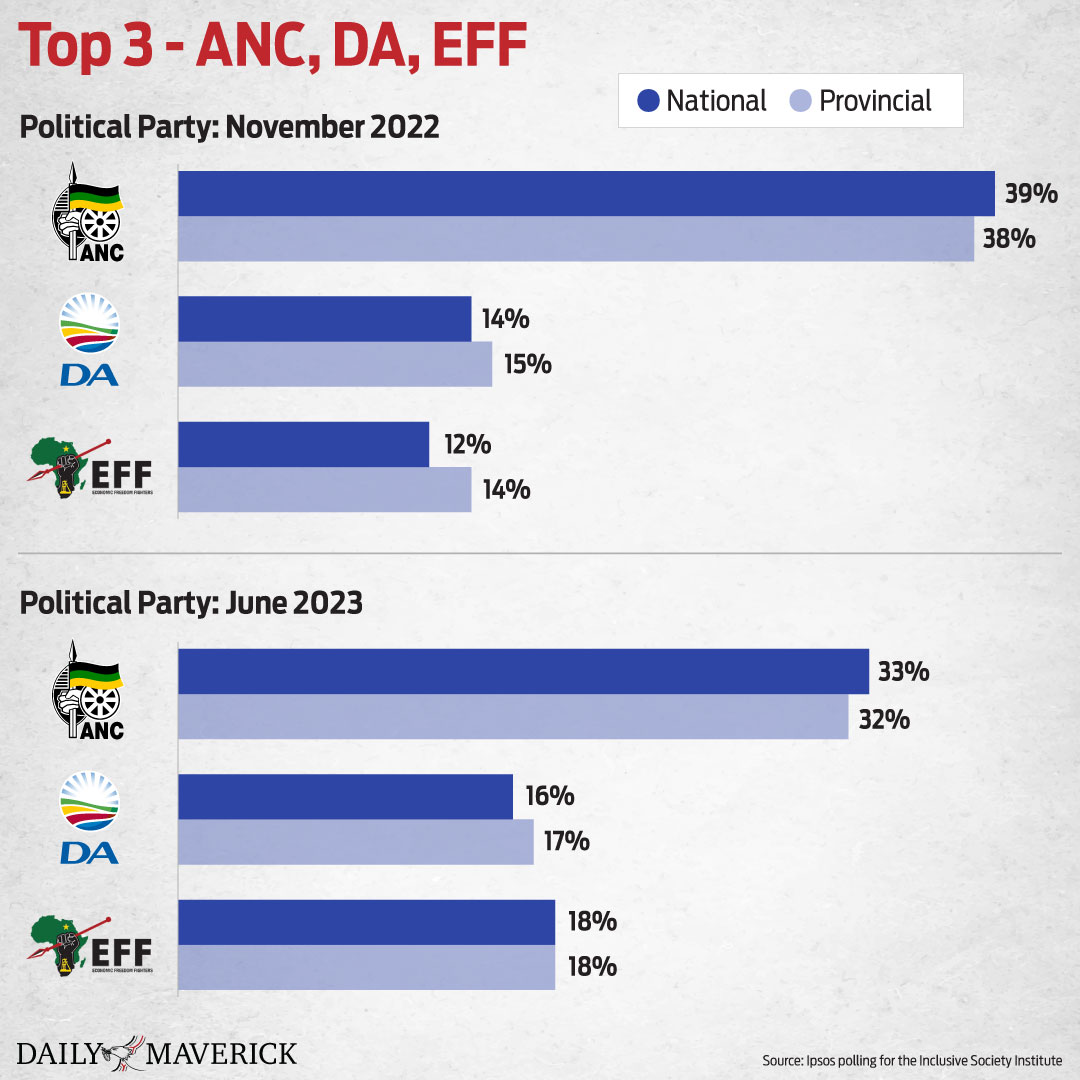
While the ANC HQ at Luthuli House has instructed that the party should pull out of alliances with the EFF, Gauteng could end up with an ANC-EFF coalition government, says Swanepoel.
ANC support in Gauteng, home to a more urban and less forgiving electorate, looks set to reach around 36%. According to the ISI analysis, the party’s outlook in KZN is even worse – with 22% support.
ANC governance in KwaZulu-Natal has collapsed, even in Durban, where the eThekwini municipality can’t keep the sea clean and safe or the beaches functioning. (See Tony Carnie’s report here.)
In KZN, a charter pact provincial government is a possibility often raised by pundits, even as the governing party took a big ward in a by-election, as Wayne Sussman reported. The ANC denies that it can lose one of its biggest voter catchment provinces. (See Chris Makhaye’s report here.)
Load shedding and corruption have come home to roost for the ANC.
How Nelson Mandela’s party has reached this position ahead of an election is a multi-layered story. If you look for one immediate reason, it is load shedding. The rolling blackouts have sucked the marrow from South Africa’s resilient people. Ongoing power cuts have worsened between 2020 and 2023, costing the economy and its people R223-billion, according to a study by Nova Economics.
“I’d say it’s load shedding, corruption and non-delivery,” says Swanepoel.
“ANC supporters say that promises come to nought. There is low trust; 43% of ANC supporters do not trust the ANC to deliver.”
To remedy this, the ANC’s campaign is returning to its first decade in power when it extended the benefits of development and democracy in meaningful ways.
Early stump analysis shows ANC leaders are using apartheid and colonialism as tropes to explain why black people, in the main, remain trapped in often near-feudal circumstances.
“I don’t think people will buy that,” says Swanepoel.
The EFF has built a support base on the idea of elusive economic freedom and created its brand on radical policies and the notion that apartheid hasn’t died but has in fact worsened. The lifestyle of its leaders is the opposite of the ascetic socialism it preaches, but this seems not to matter much to supporters.
The Red Berets are a second-choice party to the ANC, says Ipsos director for sub-Saharan Africa Mari Harris. The ANC may try to campaign by “out-radicalising” the EFF, but Swanepoel is doubtful this tactic will work.
The election in 2024 now clearly promises a rupture of the ANC’s single-party dominance and the arrival of the era of coalitions. DM
South Africa
ANC support plummets to 33%, but it is still likely to form a government next year, new study finds
